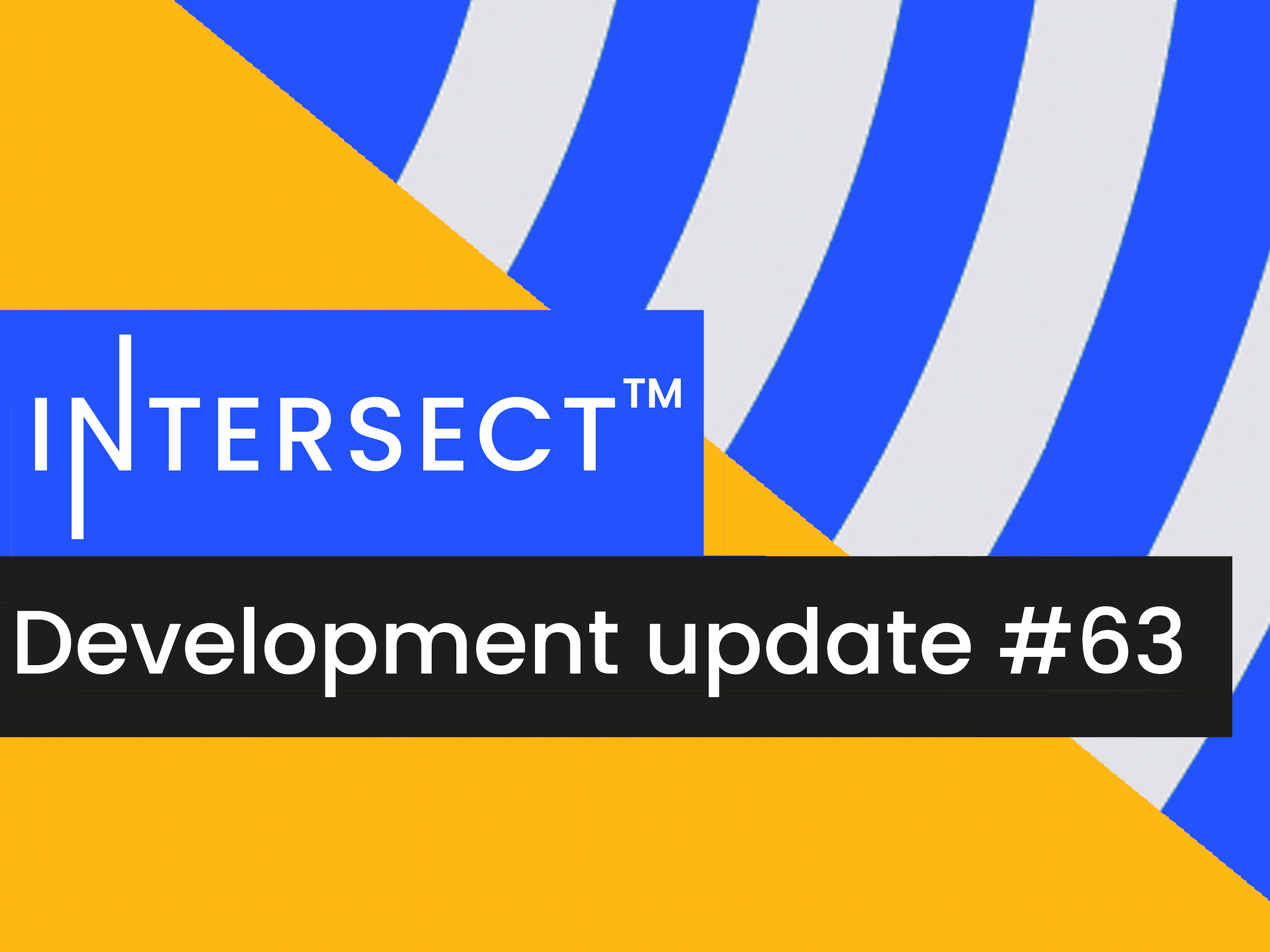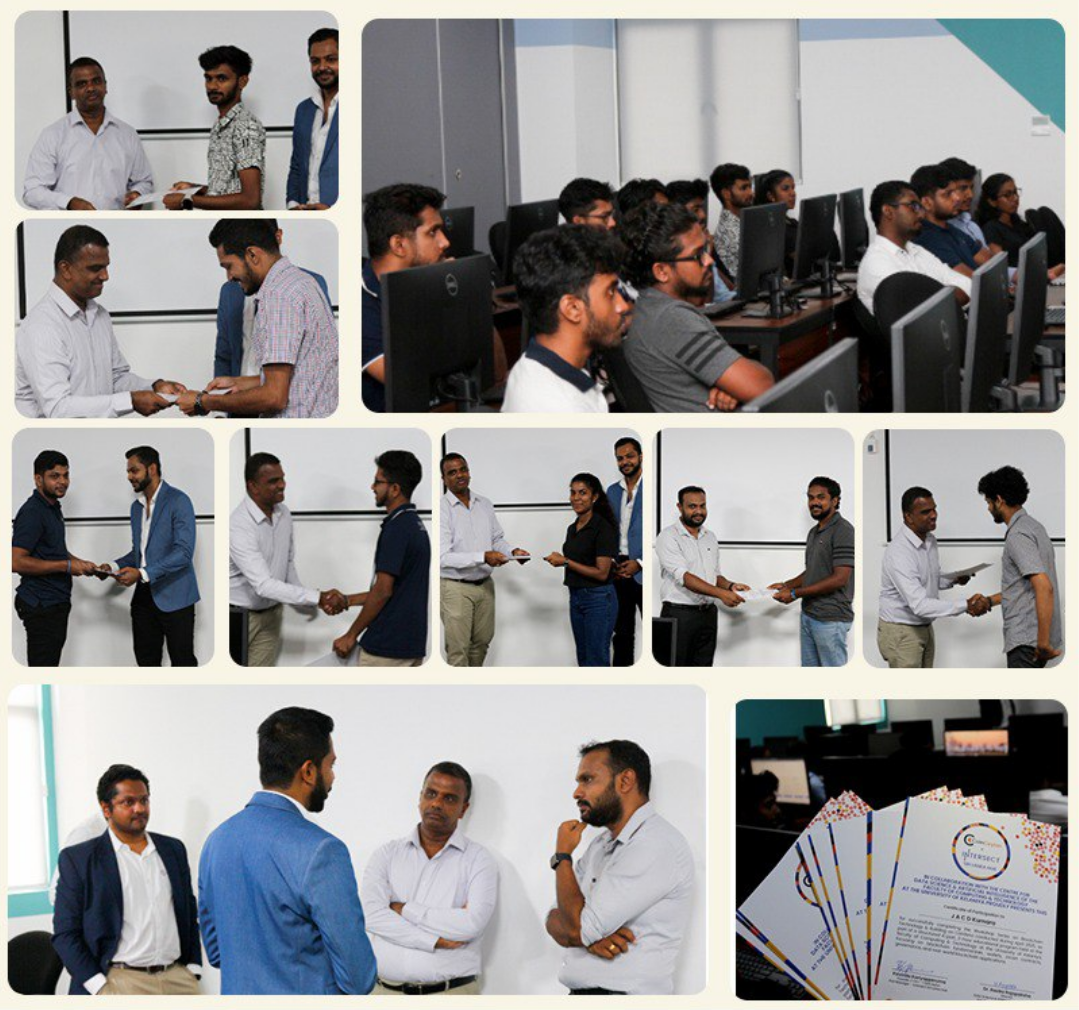Intersect Development Update #63 - May 23

This week’s report dives into the evolving structure and a new approach to phased treasury withdrawals, including upcoming Ekklesia polling. We also unpack Intersect’s role in the Cardano ecosystem funding process. Constitutional Committee candidate registration remains open through May 31. Across the ecosystem, community hubs remain active, the open source team shares April’s development metrics, and GovTool development continues despite budget uncertainty.
From bold governance initiatives to grassroots engagement, the Cardano ecosystem is in full motion - let’s explore it.
Interim Executive Director, Jack Briggs, recently shared in this X post that most DReps want more on-chain control than a single, all-or-nothing Treasury withdrawal can provide. At the same time, breaking the budget into 39 individual governance actions could be a heavy lift for the Interim Constitutional Committee (ICC).
One working compromise, soon to be polled on the Ekklesia platform, is to bundle the 39 proposals into roughly five categories, or results-based withdrawals. The first tranche would cover about six months of work, an estimated 175–190 million ada, giving vendors enough capital to begin delivery and to kick-start ecosystem funding. The remaining withdrawals could be submitted later in the year, offering a second on-chain approval stage, but importantly, giving a chance for the process and funding to build credibility and delivery progress.
The goal is to balance granular oversight with operational practicality, ensuring critical protocol updates and community initiatives proceed without forcing teams into continual fundraising operations. A decision on the structure of treasury withdrawal actions is expected once Ekklesia polling data is in, recognizing that any final plan must reflect broad ecosystem consensus and shared responsibility.
Have you voted on our Budget Info Action?
Our Budget Info Action reflects the final temperature check in Ekklesia, where we saw 194 proposals whittled down to 40. 39 of those requested Intersect as their Administrator and completed the budget allocation currently proposed on-chain. To move forward in the process, a Budget Info Action is constitutionally required to pass before Treasury Withdrawal governance actions can follow. No funds are transferred as a result of a budget being approved, but it paves the way.
Review the full proposal and vote by heading to Gov.Tools.
For an in-depth explanation of how this ₳275m package was assembled, see our blog post “Making Sense of the ₳275m Budget Info Action.”
Earlier today, we published a comprehensive article and presentation explaining our role as an Administrator in Cardano’s ecosystem funding process. We will operationalize community-approved proposals by coordinating due diligence, contracting, and on-chain disbursements in this capacity. This role is grounded in transparency, decentralization, and adherence to the Cardano Constitution.
Intersect does not evaluate proposal merit or act as a funding body, but ensures that the governance process is carried out with integrity and that delivery is trackable, auditable, and aligned with community decisions.
Notably, developed by Sundae Labs and Xerberus, we are implementing a smart contract-based framework that enhances transparency and accountability to support this process. Treasury Reserve Contracts and Vendor Contracts are used to manage and distribute funds in accordance with governance-approved milestones - Read more!
Members can find answers to common questions in the Budget Info Action FAQ or by contacting the Intersect Core Operations team at procurement@intersectmbo.org.
Constitutional Committee election update - Cardano needs you!
As of writing, seven candidates have registered for the Constitutional Committee (CC) election. Registration remains open until May 31st at 6 PM UTC, and any ada holder is eligible to apply.
Candidate profiles now editable
Candidates can now update their profiles after submitting their initial application. To make changes, they must use the same wallet they registered with. While initial applications must be submitted by the May 31 deadline, candidates can refine their information, including optional tasks, until voting begins on June 5th.
Term selection process revised
This election will fill seven seats:
- 3 seats with terms of 146 epochs (~2 years)
- 4 seats with terms of 73 epochs (~1 year)
Rather than assigning terms randomly, the newly elected candidates will choose their term lengths based on vote ranking. The top-voted candidate will pick first, then the next highest, and so on. The CC election working group agreed upon this approach.
Useful links:
Enterprise membership spotlight: Inversion
We’re excited to spotlight Inversion, a dynamic software consultancy based in South Africa that is now part of the Intersect ecosystem.
What they do:
Inversion specializes in building custom systems for the financial services industry — from insurance and reinsurance to hedge funds and blockchain infrastructure. They deliver high-quality, scalable software solutions tailored to complex financial environments.
Why do they stand out?
- Deep domain expertise in financial systems
- Agile, transparent, and collaborative development process
- Proven ability to integrate blockchain technologies into legacy systems
- Faster time-to-value and personalized client service
As an Intersect enterprise member, Inversion brings both technical depth and a commitment to decentralized innovation, making them an ideal collaborator in shaping the future of Cardano-powered finance.
Open source
The open source office has dedicated some time to maintain concurrent reporting of development metrics for Cardano. Utilizing data provided by our partners at Bitergia, through the use of Grimoire Labs, we are pleased to present the April 2025 maturity report. Our reports are highly focused on the core development metrics such as commits, issues, and pull requests, including commits by timezone and organization versus project-level comparisons. With the help of AI, we can produce a cohesive report that details the dynamic changes to development, beautifully showcasing the true ideals of decentralization.
Our project spotlights continue. Check out our latest updates for Cardano Node. They include bug fixes, memory enhancements since the Plomin hard fork, and a future outlook. We thank Kevin Hammond and Samuel Leathers for continuing as our resident experts.
Watch here! Follow/subscribe to, open an open-source office on Youtube and X.
Community hubs
Before diving into the exciting events happening across our community hubs this week, we’d like to shine a spotlight on the outstanding work of the Sri Lanka community hub. Hub Manager Kavinda Kariyapperuma recently met with the President of Sri Lanka, H.E. Anura Kumara Dissanayake, to explore the transformative potential of blockchain technology in the country. Their discussion highlighted the Sri Lanka hub’s on-the-ground efforts to advance blockchain education through their recent University workshops and promote Cardano-based initiatives. Kavinda also had the opportunity to share the Intersect Development Report during the meeting, marking a significant moment of collaboration and vision for the future.
Moving on to our hubs’ events, last week, our Africa community hub, led by WADA, hosted an internal hub meeting on May 15, with 19 attendees. The meeting covered an open discussion of the Cardano Net Change Limit (NCL), updates from Project Catalyst, and an overview of the SNet DF4 project: Exponential Technologies Training in collaboration with Wada, Edify, and Remostart. You can watch the recording here.
Our North America hub, led by AWEN, also held a Consensus 2025 side event with 143 attendees. Event partners included Sundial Protocol, Draper University, Rare Network, Clay Nation, and Awen.
This week, our community hubs are hosting the following events:
Japan hub
The link to join is here for x space to be held on May 23 at 12 UTC.
Africa hub, led by WADA
Hub internal meeting to be held on May 22 at 17:00 UTC. The link to join is here.
Sri Lanka hub, led by CoinCeylon
The Sri Lanka hub successfully concluded its 4-part 3-hour workshop series at the University of Kelaniya on May 20, titled “Mastering Blockchain Technology & Building on Cardano: From Fundamentals to Practical Applications.” The series, in collaboration with the university’s Centre for Data Science & Artificial Intelligence, ran over a month and engaged 108 registered students. The final session focused on advanced topics such as building real-world blockchain applications using tools like MeshJS and Aiken, decentralized governance and Cardano voting mechanisms, and an introduction to the Cardano Academy certification program.
All participating students were awarded certificates of participation. The closing session was graced by Prof. Hesiri Dhammika Weerasinghe, Dean of the Faculty of Computing & Technology, at the University of Kelaniya, and Dr. Rasika Rajapakse, Director of the Data Science & AI Centre, who played a vital role in organizing and supporting the workshop series. You can view the hub’s X post here.

Governance tooling
GovTool continues to receive functional improvements, supported by existing contracts with community builders until July 2025. Recent updates include the first open-source contribution via the sentiment check PR, and active development is underway on features such as SyncAI integration, co-sponsor functionality for crowdfunding, and expanded support for CIP-1694 governance actions.
While longer-term funding remains under review, Intersect will make a maintenance grant package available to support continuity over the next 12 months. The red banner in GovTool is part of a broader effort to keep users informed and engaged as the tool evolves.
Governance in numbers
Since Friday, May 16, 2025:
- We've advanced from epoch 558 to epoch 559
- Unique delegators increased by 4442 (171,385 -> 175,827)
- The total number of vote delegations increased by 5398 (195,404 -> 200,802)
- Total DRep votes increased by 232 (3064 -> 3296)
- The total number of DRep registrations increased by 6 (1279 -> 1285)
- DReps who have attached metadata increased by 6 (801 -> 807)
To learn how to start using Cardano GovTool, explore the GovTool documentation. Here, you'll find everything from step-by-step guides to detailed explanations of its features.
On the Intersect Discord server, you can connect to the core maintainers of governance tools via the new request and new help & support channels under Core Governance Tools in Discord.
Governance tools working group
The working group addressed GovTool’s uncertain future, discussing contingency plans and strategies to strengthen community support. Topics included improving communication, enabling community-led proposals, and exploring decentralized maintenance and tiered budgeting models. As a vital piece of Cardano infrastructure, GovTool powers participation, previews, and APIs.
Proposals include hosting X Spaces, increasing outreach, and involving marketing support to raise awareness. GovTool remains fully open source and community-maintained. The working group welcomes feedback and contributions via the wg-governance-tools Discord channel, where new ideas are actively triaged and developed.
That’s it for this week’s update — thank you for reading. To learn more about Intersect’s work, explore our Knowledge Base, which provides detailed information on governance structures, committees, and funding. Also, visit the Intersect website for the latest news, updates, and roadmap.
Join the conversation on Discord, and follow us on Twitter (X) and LinkedIn to engage with fellow members, working groups, and the broader community.
Your voice helps shape the future of Cardano governance.